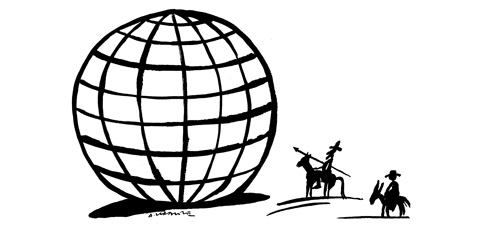After spending months lobbying members of the U.N. General Assembly to award them nonpermanent seats on the U.N. Security Council, Germany and Portugal were finally elected Tuesday.
A jubilant Guido Westerwelle, the German foreign minister, said a more powerful European member on the Security Council, which includes Britain, China, France, Russia and the United States, should increase the influence of the European Union. Because human rights and democratic values are at the heart of Europe’s philosophy, its diplomats believe such values are attractive and exportable to non-European democracies and emerging democracies.
This was the case after the collapse of the Berlin Wall in 1989 that led to the peaceful reunification of Germany and the disintegration of the Iron Curtain. When most of the post-Communist countries of Eastern Europe joined the Union in 2004, it seemed that Europe’s focus on human rights, democracy and the market economy had been vindicated. Neighboring countries lined up to join the bloc. Countries in Latin America and Africa sought closer ties with Brussels.
But with the radical shifts in global influence led by China, Europe’s influence is waning, and fast.
“The E.U.’s hopes of supporting human rights and democracy around the world are at risk of being defeated by changes in the global balance of power,” said Anthony Dworkin, international law expert at the European Council on Foreign Relations. Nowhere is this more obvious than at the United Nations, where the Union has suffered embarrassing defeats. Read full article in the New York Times...
Was this article useful? If so we are delighted!
It is freely available because we believe that the right to free and independent information is essential for democracy. But this right is not guaranteed forever, and independence comes at a cost. We need your support in order to continue publishing independent, multilingual news for all Europeans.
Discover our subscription offers and their exclusive benefits and become a member of our community now!












